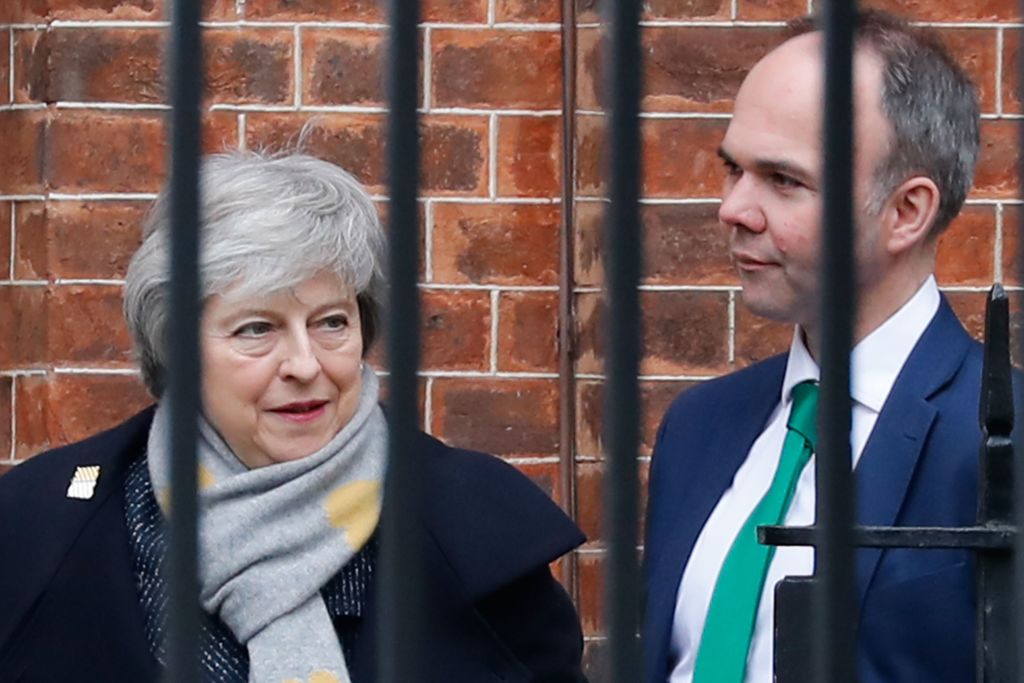Gavin Barwell is a decent enough chap, but the more you read of his time as Theresa May’s chief of staff, the more you realise why her government was doomed. He paints a picture of a low-energy government in the midst of high-energy national crisis.
Nothing demonstrates this better than the corresponding reading lists of Barwell and his successor at 10 Downing Street, Dominic Cummings.
This is the reading list Cummings set for data scientists interested in applying to his ‘weirdos and misfits’ job advert at the beginning of the year:
- This Nature paper, Early warning signals for critical transitions in a thermoacoustic system, looking at early warning systems in physics that could be applied to other areas from finance to epidemics.
- Statistical & ML forecasting methods: Concerns and ways forward, Spyros Makridakis, 2018. This compares statistical and ML methods in a forecasting tournament (won by a hybrid stats/ML approach).
- Complex Contagions : A Decade in Review, 2017. This looks at a large number of studies on ‘what goes viral and why?’. A lot of studies in this field are dodgy (bad maths, don’t replicate etc), an important question is which ones are worth examining.
- Model-Free Prediction of Large Spatiotemporally Chaotic Systems from Data: A Reservoir Computing Approach, 2018. This applies ML to predict chaotic systems.
- Scale-free networks are rare, Nature 2019. This looks at the question of how widespread scale-free networks really are and how useful this approach is for making predictions in diverse fields.
- On the frequency and severity of interstate wars, 2019. ‘How can it be possible that the frequency and severity of interstate wars are so consistent with a stationary model, despite the enormous changes and obviously non-stationary dynamics in human population, in the number of recognised states, in commerce, communication, public health, and technology, and even in the modes of war itself? The fact that the absolute number and sizes of wars are plausibly stable in the face of these changes is a profound mystery for which we have no explanation.’ Does this claim stack up?
- Papers on computational rationality.
- The work of Judea Pearl, the leading scholar of causation who has transformed the field.
And Barwell’s reading list? In a speech to the Institute for Government last night, he said:
“There is a book called The Gatekeepers by Chris Whipple, which is a history of the office of chief of staff to the president of the United States. He has one chapter on each person who occupied the office. And I read it in the first few weeks doing the job.”
It is easy to mock Cummings and say his fondness for referring to obscure scientific papers is a carefully cultivated affectation to make him look cleverer than he is; that his desire to disrupt everything could very well just disrupt everything, without achieving useful results. While that may turn out to be true, is there not an astonishing gap in ambition between the two men, which inevitably rub off on the administrations they serve?
Cummings wants to transform everything; Barwell saw himself as a humble servant, sitting outside the Prime Minister’s office – which he says he did all day, every day. “No one can get in to see the prime minister without going past you”, he boasted in Monday night’s speech, as if he aspires to be a Yeoman of the Guard or – more realistically – a bouncer, in his next career.
It is a revealing insight about the passive nature of the May government and why it failed so spectacularly in its negotiations with the EU. The May administration sat and waited for people and proposals to arrive and then decided whether it would let them through the door or not. Thus it allowed the EU to set the timetable for negotiations – to dictate, for example, that no trade talks could get underway until a withdrawal fee had been agreed – and to set terms for everything.
May’s government responded only by setting ‘red lines’ behind which it endlessly retreated. The result was a deal which would have allowed the EU to trap us into its regulatory orbit forever after.
You don’t have to be a data scientist, or share Cummings’ penchant for theories on chaotic systems, to appreciate that a bit of gaming is required when negotiating with the EU or indeed with any government or supra-governmental body.
We might not get everything we want in the form of a trade deal with the EU, but at least – given the change in Downing Street – there are now both sides locked in negotiations, not one side pushing at an open door.







Comments